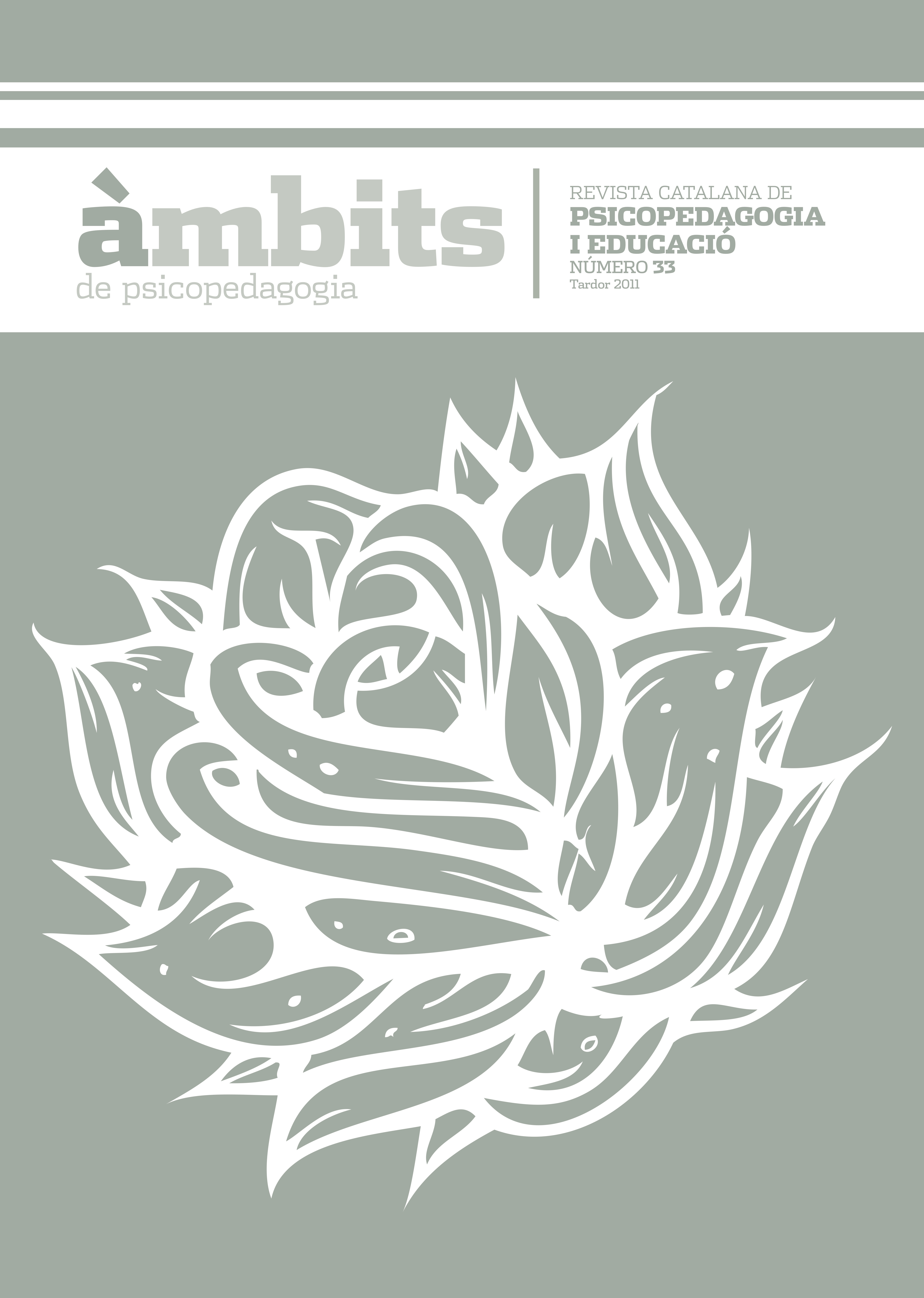FUNDS OF KNOWLEDGE. An educative intervention to improve family-school relationships in cultural discontinuity and social inequality situations
Abstract
This article presents a discussion of the proposal known as “Funds of knowledge”. In particular, it is introduced the origin, theoretical principles and Catalonia application of this intervention. Funds of knowledge is designed to foster home-school relationship in contexts with high cultural diversity through creation of mutual trust relationships between both teachers and parents. The concept of “funds of knowledge” is based on a simple premise: people are competent and have knowledge, and their life experiences have given them that knowledge. In the first section, the history and goals of this program in North America is presented. After that, it is illustrated the application of this strategy in Girona. The claim is that first-hand research experiences with families allow one to document his competence and knowledge, and that such engagement provides many possibilities for positive pedagogical actions.
References
Coll, C. (2000). Educación, territorio y responsabilidad ciudadana. En J. A. Grade (Ed.), Informe 2000. Políticas sociales y estado del bienestar en España (pp. 165-187). Madrid: Fundación Hogar del Empleado.
González, N., Moll, L., & Amanti, C. (2005). Funds of knowledge. Theorizing practices in households, communities and classrooms. Mahwah: Lawrence Erlbaum Associates.
Miller, L. S. (1995). An American imperative: Accelerating minority educational advancement. New Haven: Yale University Press.
OCDE (2005). Resultados en España del estudio PISA 2000. Madrid: Ministerio de Educación.
OCDE (2008). PISA 2006. Informe español. Madrid: Ministerio de Educación.
OCDE (2010). PISA 2009. Informe español. Madrid: Ministerio de Educación.
Ogbu, J. (1982). Cultural discontinuities and schooling. Anthropological and Educationa Quarterly, 13, 290-307.
McIntyre, E., Kyle, D. W. y Rightmyer, E. C. (2005). Los fondos de conocimiento de las familias como mediación de la enseñanza en los colegios rurales. Cultura y Educación, 17, 175-195.
McIntyre, E., Rosebery, A., & González, N. (2001). Classroom Diversity. Connecting Curriculum to Students’ Lives. Portsmouth: Heinemann.
Moll, L. C. (1997). Vygotsky, la educación y la cultura en acción. En A. Álvarez (Ed.), Hacia un currículum cultural. La vigencia de Vygotski en la educación (pp. 39-53). Madrid: Fundación Infancia y Aprendizaje.
Moll, L. C. (2002). Through the mediation of others: Vygotskian research on teaching. En V. Richardson (Ed.), Handbook of research on teaching (4th ed.). Washington, DC: American Educational Research Association.
Moll, L. C. (2005). Concluding commentary. Reflections and possibilities. En N. González, L. Moll & C. Amanti (Eds.), Funds of knowledge. Theorizing practices in households, communities, and classrooms (pp. 275-287). Mahwah, NJ: Lawrence Erlbaum Associates.
Moll, L. C. (2011). Only Life Educates: Immigrant Families, the Cultivation of Biliteracy, and the Mobility of Knowledge. En P. Portes & Salas (Eds.), Vygotsky in 21st-Century Society: Advances in Cultural Historical Theory and Praxis with Non-Dominant Communities (pp. 151-161). New York: Peter Lang.
Moll, L. C. (en prensa). L. S. Vygotsky and education. Londres: Routledge.
Moll, L. C. & González, N. (2004). Engaging life: A funds of knowledge approach to multicultural education. En J. Banks & C. McGee Banks (Eds.), Handbook of Research on Multicultural Education (2nd ed.) (pp. 699-715). New York: Jossey-Bass.
Moll, L. C. & Greenberg, J. (1990). Creating zones of possibilities: Combining social contexts for instruction. En L. C. Moll (Ed.), Vygotsky and education (pp. 319-348). Cambridge, UK: Cambridge University Press.
Moll, L., C. Tapia, J. & Whitmore, F. (2001). Conocimiento vivo: la distribución social de los recursos culturales para el pensamiento. En G. Salomon (Comp.), Cogniciones distribuidas. Consideraciones psicológicas y educativas (pp. 185-213). Buenos Aires: Amorrortu.
Poveda, D. (2001). La educación de las minorías étnicas desde el marco de las continuidades-discontinuidades familia-escuela. Gazeta de Antropología, 17, 17-31.
Rychen, D.S. & Salganik, L.H. (2003). Key competencies for successful life and a well-functioning society. Göttingen: Hogrefe & Huber.
Vila, I. (1998). Familia, escuela y comunidad. Barcelona: HORSORI.
Vila, I. y Casares, R. (2009). Educación y sociedad. Una perspectiva sobre las relaciones entre la escuela y el entorno social. Barcelona: HORSORI.
Vygotski, L. S. (1962). Thought and language. Cambridge, MA: MIT Press.
Vygotski, L. S. (1984). Aprendizaje y desarrollo intelectual en la edad escolar. Infancia y Aprendizaje, 27/28, 105-116.
Willms, J.D. (2004). Student performance and socio-economic background. New Brunswick: University of New Brunswick.
Downloads
Published
Issue
Section
License
The authors maintain their copyright and give the right to the first publication of the work to the journal, registered under a Creative Commons Attribution-Non Commercial-NoDerivs license. This license allows others to download the works and to share them with others as long as they credit the author, but it does not allow for any kind of modification or commercial use.















